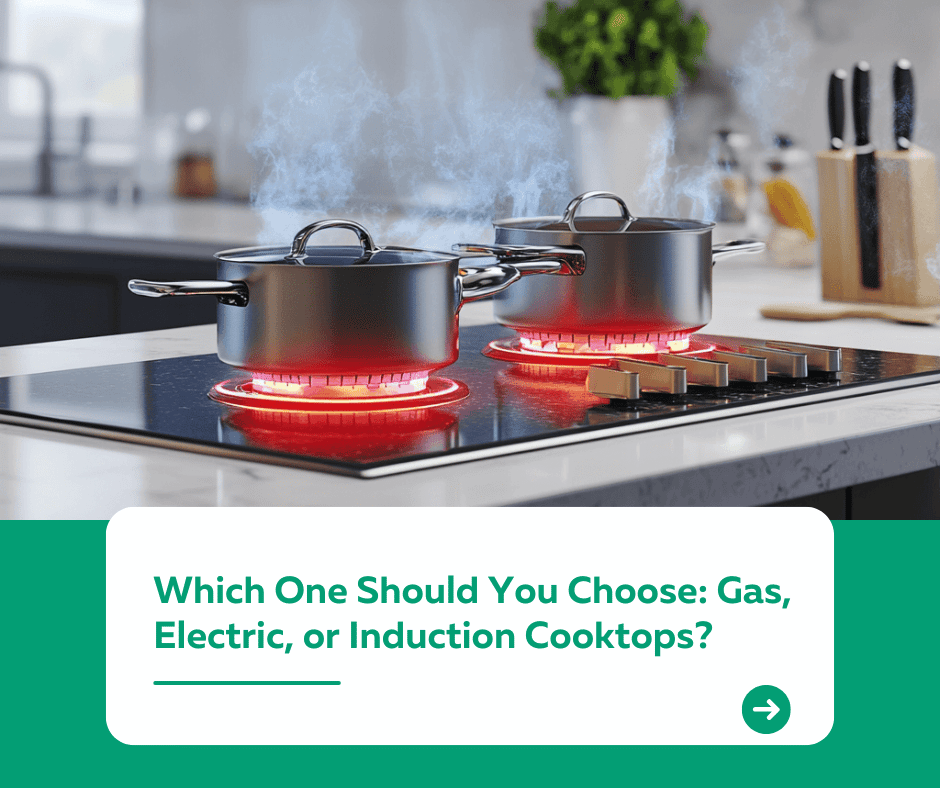
Introduction
Choosing the right cooktop is essential for creating a functional and efficient kitchen. Which one should you choose: gas, electric, or induction? Each cooktop type has its unique advantages and disadvantages. In this article, we’ll compare these options to help you decide which cooktop best suits your cooking style and needs.
1. Gas Cooktops
How They Work: Gas cooktops use an open flame fueled by natural gas or propane to heat cookware.
Advantages:
- Instant heat control for precise cooking.
- Works with any type of cookware.
- Durable and reliable, often preferred by professional chefs.
Disadvantages:
- Requires a gas connection, which may not be available in all homes.
- Open flames can pose a safety risk.
- Harder to clean due to grates and burners.
Best For: Home cooks who prioritize control and versatility in their cooking.
2. Electric Cooktops
How They Work: Electric cooktops use a heating element beneath a smooth or coiled surface to transfer heat to cookware.
Advantages:
- Easy to clean, especially with a smooth glass surface.
- More affordable than gas or induction options.
- Consistent heat distribution for even cooking.
Disadvantages:
- Slower to heat up and cool down compared to gas.
- Limited heat precision.
- Requires compatible flat-bottomed cookware for smooth surfaces.
Best For: Those seeking an affordable and easy-to-maintain option.
3. Induction Cooktops
How They Work: Induction cooktops use electromagnetic energy to heat the cookware directly, rather than the surface.
Advantages:
- Highly energy-efficient, as heat is focused only on the cookware.
- Heats up quickly and offers precise temperature control.
- Safer option, as the cooktop surface stays cool.
Disadvantages:
- Requires induction-compatible cookware (magnetic bottoms).
- More expensive upfront compared to gas or electric.
Best For: Modern kitchens and tech-savvy cooks who value safety, speed, and precision.
4. Key Comparisons
| Feature | Gas Cooktops | Electric Cooktops | Induction Cooktops |
|---|---|---|---|
| Heat Control | Instant and precise | Moderate | Highly precise |
| Energy Efficiency | Moderate | Low | High |
| Safety | Open flame risk | Hot surface risk | Cool surface, safer |
| Cookware | Any cookware | Flat-bottomed cookware | Induction-compatible only |
5. Which Cooktop Is Right for You?
- Choose gas if you value versatility and control.
- Opt for electric if you want affordability and easy cleaning.
- Select induction if you prefer energy efficiency, safety, and speed.
Conclusion
The decision between gas, electric, or induction cooktops depends on your cooking habits, budget, and kitchen setup. Each has its strengths, so consider your priorities before making a choice. For more tips and kitchen advice, visit Kuestion.com.